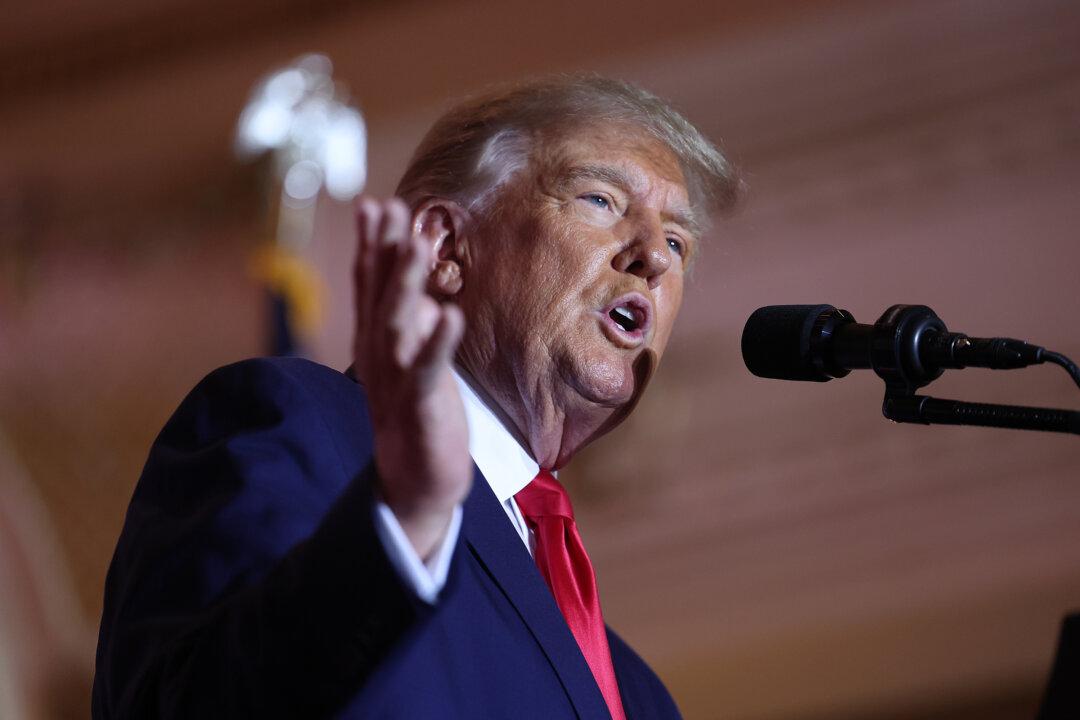Former President Donald Trump announced Thursday that he will bar the federal government from using terms such as “misinformation” and “disinformation” to describe domestic speech if he’s reelected.
In a video released by the New York Post, Trump said that if he’s named the winner in 2024, one of his first executive acts will target federal rules around speech. The advertisement-like clip showed Trump making his announcement in front of two American flags.





